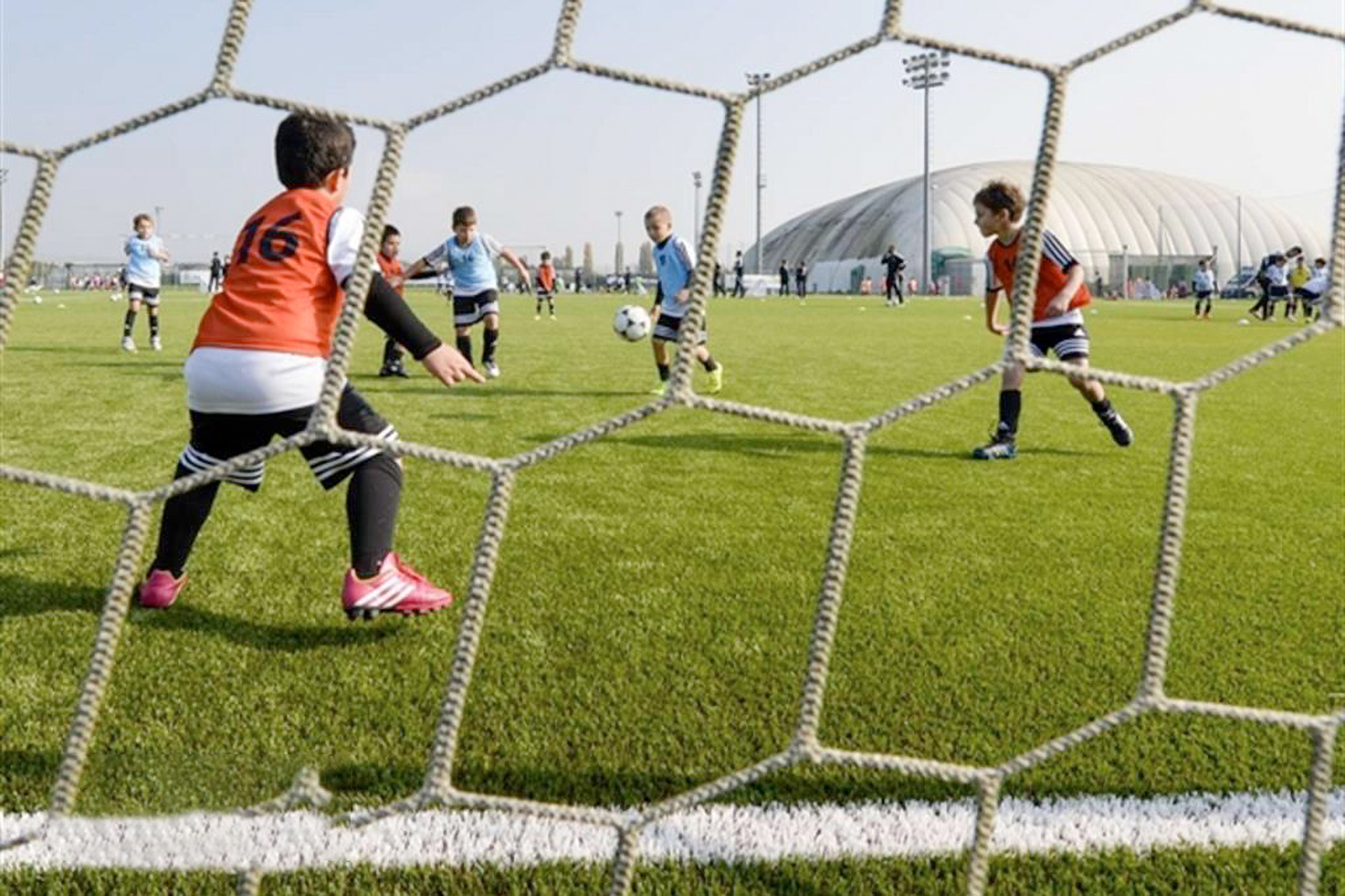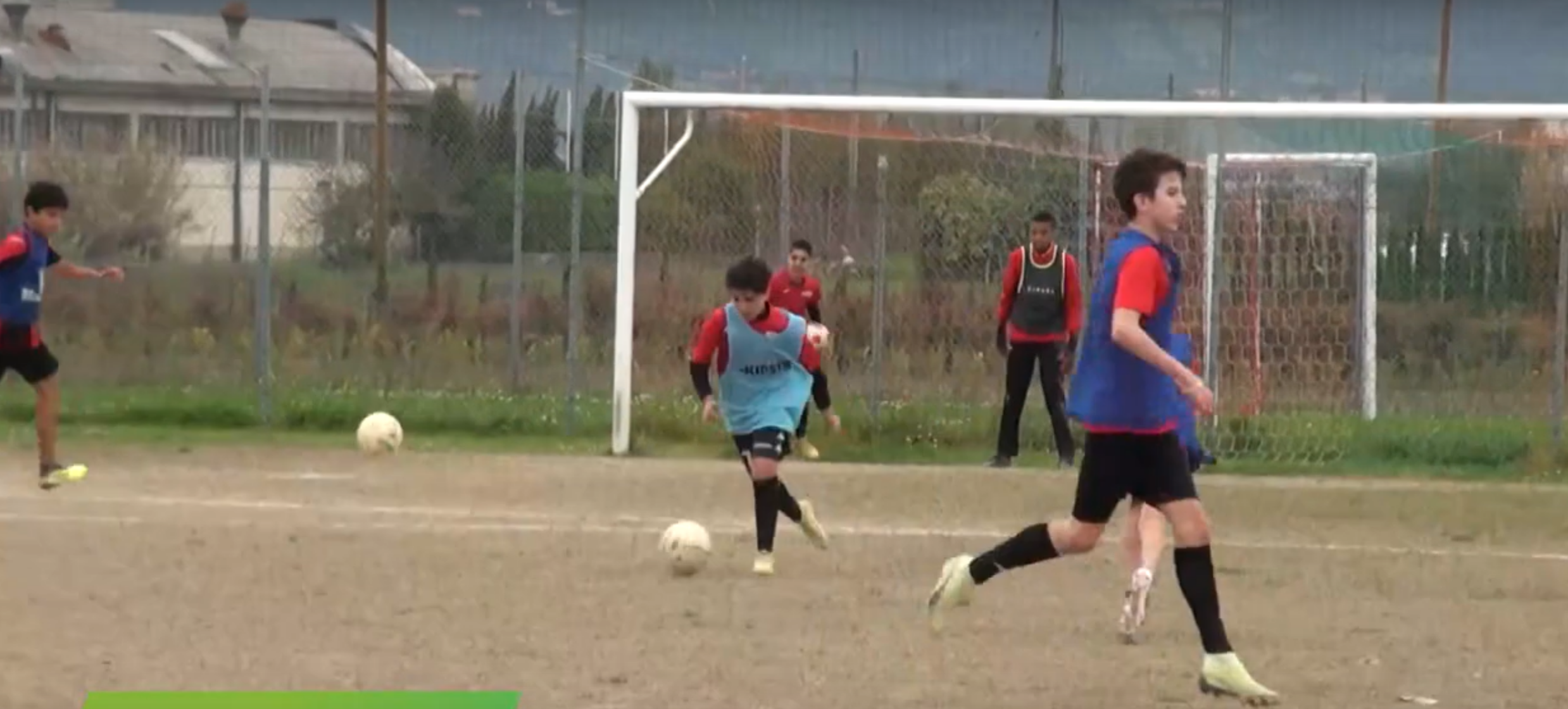Youth soccer. Soccer transcends the simple concept of a sport to become a true passion involving more than 4 billion fans worldwide, making it indisputably the most popular game on the planet.
Pelé, a soccer legend, beautifully summed up this phenomenon by stating,“Soccer is the universal language that crosses all barriers.” In addition to being a recreational activity, soccer takes root in neighborhoods, schools and parks in every corner of the world, transforming the lives of young people. The sport on young people has a profound impact that goes beyond entertainment: it educates, unites and inspires future generations, providing them with life lessons that remain imprinted far beyond the confines of the field. Youth soccer becomes a school of life.
The Impact of Football on Youth
Playing soccer offers children a unique opportunity for personal growth and development. In addition to honing motor skills by improving coordination, agility and physical endurance, soccer teaches vital values and lessons that extend far beyond the four lines of the field. Much international research indicates that young soccer players develop better muscle and cardiovascular strength, which contributes significantly to the prevention of childhood obesity.
WHO recommends that all children and adolescents engage in an average of 60 minutes of moderate-intensity aerobic physical activity per day, including activities that strengthen muscles and bones at least 3 times a week. However, more than 80 percent of adolescents do not meet these recommendations, and it is estimated that children and adolescents may spend more than 8 hours of the day being sedentary and inactive, a behavior associated with poor fitness, weight gain and reduced sleep.
Soccer training can be a solution. FIFA President Gianni Infantino said, “We know the negative impact on children’s health that lack of exercise can have, and soccer can spread that message in this exciting and engaging way.”

Youth Football and Social Development
Soccer is a training ground for life that teaches more than just sports skills or soccer tactics. Lionel Messi, one of the greatest soccer players of all time, highlighted the importance of teamwork in his words, “Soccer is a team sport and the best player is the one who helps the team achieve its goals.”
In the field, young people learn to work together for a common goal, developing conflict management and a spirit of cooperation. These skills are critical to personal and professional success, as they prepare children to interact effectively with others in any setting. When young people play a sport, they then learn how to work as a team, handle disappointment and face challenges with the right mindset. These social skills then translate into a healthier and more productive school, work and relationship environment.
Soccer is also an opportunity to create bonds and connections. Sports teams, in youth leagues, act like a family, encouraging a sense of belonging and solidarity among members. Experiencing victories and defeats together strengthens bonds and creates a network of support that lasts. In addition, soccer fosters social inclusion by uniting people of different ethnicities, cultural backgrounds and life stories even at an early age across all youth soccer categories.
Psychological Benefits of Playing Football
Soccer also serves as a powerful tool for psychological well-being. The game boosts young people’s self-esteem, giving them the opportunity to overcome challenges and achieve goals in a supportive environment. In addition, playing at some level of competition can also teach stress management and a balance between commitment and fun. It also reduces anxiety levels, providing a healthy outlet for everyday tensions.
Soccer teaches resilience, as highlighted by David Beckham:“It’s all about how you get back up when you fall.” This lesson is vital as it prepares young people to face and overcome life’s challenges.
The Role of Parents and Coaches in Youth Football
Parental support and coach guidance are key elements in youth soccer. Creating a balanced environment that encourages without exerting undue pressure is essential for the healthy development of young athletes. Safety and health must always come first, with a focus on injury prevention and proper training on how to deal with accidents. This not only ensures a safe sports experience but also teaches vital emergency management skills.

Education for Sacrifice and Discipline in Football
Soccer is known to be a discipline that requires commitment and dedication through training, offering young people a valuable lesson in the importance of sacrifice. Through regular soccer training (including through educational and innovative tools such as Dribblium) and competitions, young soccer players learn the value of hard work and perseverance.
The commitment required to improve every day on the field teaches children that success is the result of constant sacrifice and dedication, not only in soccer, but in all walks of life. This disciplined approach helps instill a strong work ethic in young people, preparing them to overcome challenges with integrity and determination.
Future Opportunities Thanks to Football
Soccer opens the door to countless opportunities for personal and professional growth. In addition to being a platform for athletic success in youth soccer, the sport can serve as a springboard for educational opportunities and scholarships, especially in countries where athletic talent is recognized and valued.
It also promotes inclusion and accessibility, breaking down barriers of gender and disability, and making the game available to all children, regardless of their social or economic circumstances. Finally, champions inspire all categories of youth soccer. Watching dedicated athletes achieve extraordinary results fuels ambition and the desire to pursue their dreams.
The example of a successful sportsman can inspire a child to push his or her own limits and believe that anything is possible. This kind of inspiration is crucial to the growth and development of new talent, to the discovery of promising new soccer players through the watchful eye of scouts probing youth leagues and tournaments.
In conclusion, youth soccer is not just a game, but a true school of life that offers invaluable lessons. This wonderful sport invites all parents to consider the immense opportunities it can offer their children, not only in terms of health and fitness but as preparation for life itself. As Johan Cruyff wisely said, “Soccer is simple, but the hardest is to play simple.” Let us make this simplicity the key to unlocking a world of possibilities for our youth.







